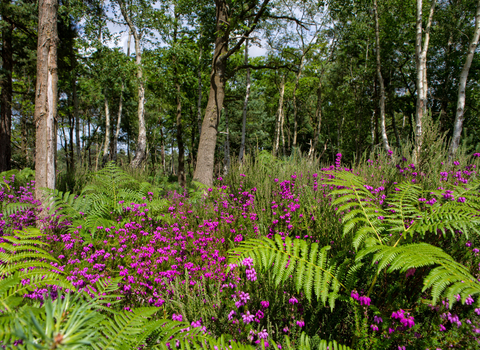
©Jon Hawkins
Bracken
Our most familiar fern, bracken can be found growing in dense stands on hillsides, moorland, heathland and in woodlands. It is very large and dies back in winter, turning the landscape orangey-brown.
Scientific name
Pteridium aquilinumWhen to see
January to DecemberSpecies information
Category
Statistics
Height: up to 2mCommon.
